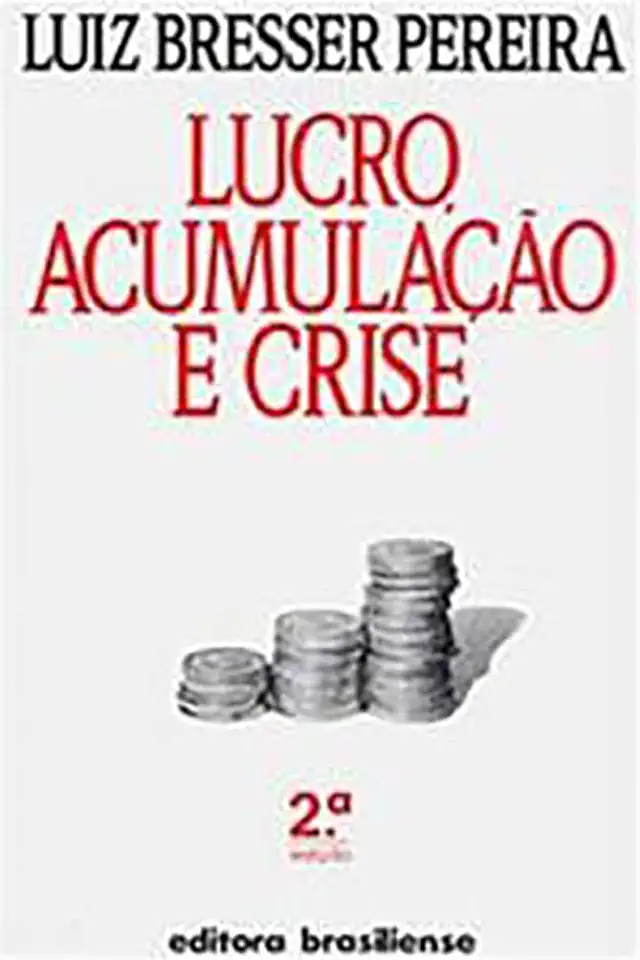
Profit, Accumulation and Crisis - Luiz Bresser Pereira
Profit, Accumulation and Crisis: A Marxist Perspective
Luiz Bresser Pereira's seminal work, "Profit, Accumulation and Crisis," offers a comprehensive and insightful analysis of the dynamics of capitalism, rooted in a Marxist perspective. This book delves into the intricate relationship between profit, accumulation, and crisis, providing a profound understanding of the inner workings of the capitalist system.
Understanding the Essence of Profit
Pereira begins by exploring the concept of profit, the driving force behind capitalist economies. He argues that profit is not merely a reward for entrepreneurship or risk-taking but rather a surplus extracted from the labor of workers. This surplus value, as Marx termed it, is the foundation of capitalist accumulation and the source of economic growth.
The Accumulation Process and its Contradictions
Pereira then examines the process of accumulation, the driving force behind capitalist economies. He argues that accumulation is not a smooth and linear process but rather a contradictory one, fraught with inherent tensions and imbalances. The pursuit of profit often leads to overproduction, resulting in periodic crises that disrupt the system's equilibrium.
The Role of Crisis in Capitalist Development
Pereira emphasizes the crucial role of crisis in capitalist development. He argues that crises are not aberrations but rather an integral part of the system's dynamics. Crises serve as mechanisms for readjustment, purging inefficiencies and paving the way for renewed accumulation. However, Pereira also warns that prolonged and severe crises can undermine the stability and legitimacy of the capitalist system itself.
The State and the Regulation of Capitalism
Pereira also explores the role of the state in regulating capitalism and mitigating its inherent contradictions. He argues that the state plays a crucial role in stabilizing the system, preventing crises from spiraling out of control, and ensuring the reproduction of labor power. However, Pereira also cautions against excessive state intervention, which can stifle economic dynamism and undermine the system's inherent self-regulating mechanisms.
Beyond Capitalism: Envisioning Alternative Economic Systems
In the final part of the book, Pereira reflects on the limitations of capitalism and explores the possibility of alternative economic systems. He argues that capitalism, while generating unprecedented economic growth and technological progress, has also produced deep-seated inequalities, environmental degradation, and social alienation. Pereira suggests that alternative systems, such as socialism or participatory economics, may offer more sustainable and equitable paths to human development.
Conclusion: A Must-Read for Understanding Capitalism
"Profit, Accumulation and Crisis" is a tour de force in Marxist economic thought. Pereira's rigorous analysis, insightful arguments, and thought-provoking conclusions make this book a must-read for anyone seeking a deeper understanding of capitalism, its contradictions, and its potential alternatives. Whether you are an economist, a policymaker, a student, or simply a curious reader, this book will challenge your assumptions and expand your horizons.